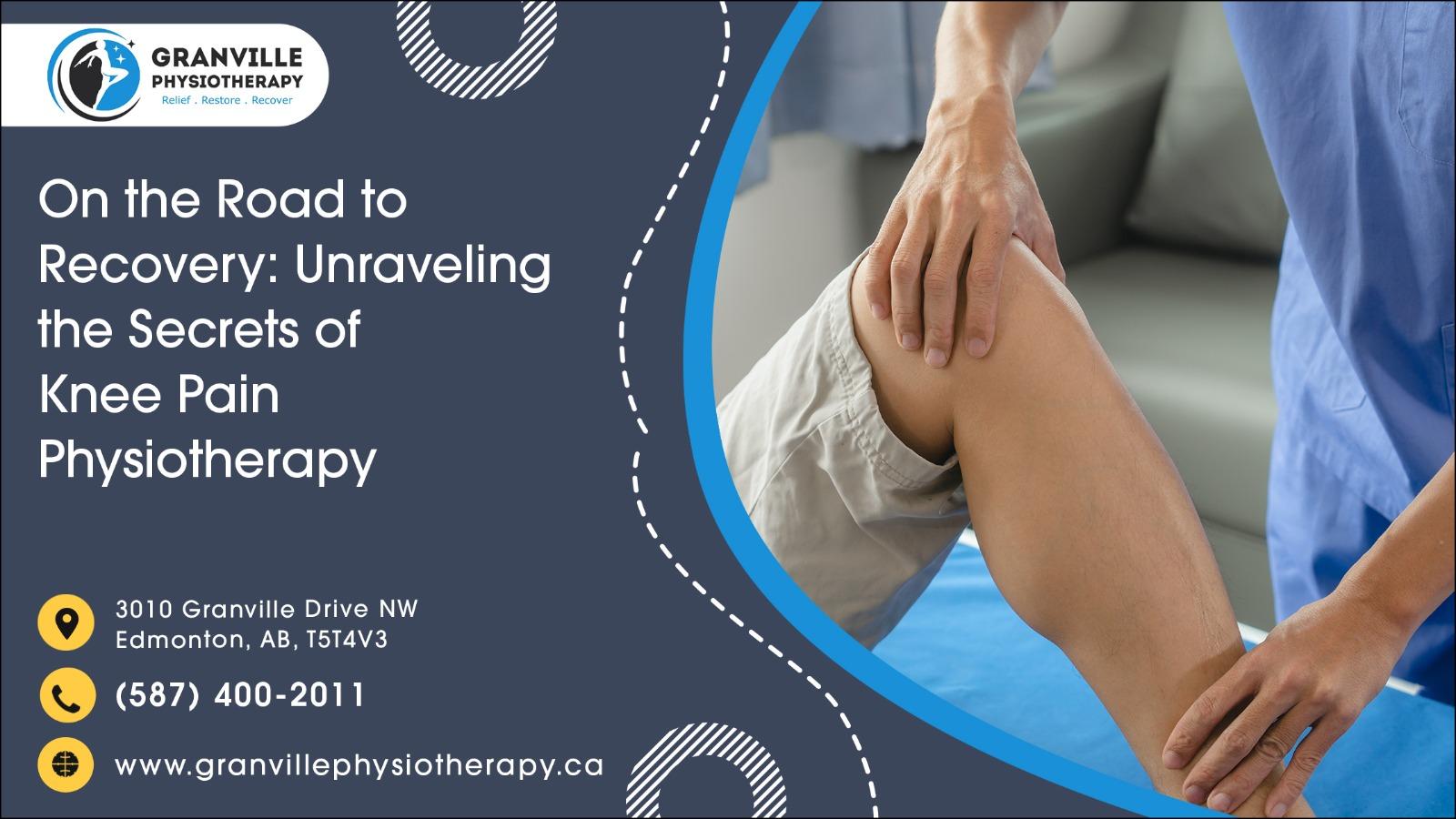

Knee pain, a common ailment that affects individuals of various ages and backgrounds, can significantly impede one's quality of life and mobility. In Edmonton, knee pain physiotherapy has become a sought-after solution for those seeking relief and a path to recovery. Clinics like Granville Physiotherapy in Edmonton are providing specialized care, utilizing a combination of cutting-edge techniques and personalized approaches to address and alleviate knee pain.
Knee Pain and Its Impact
Knee pain can have a profound and far-reaching effect on an individual's daily life and overall health. Its impact varies from being a minor nuisance to a severe impediment, restricting one's ability to move freely and perform basic activities such as walking, climbing stairs, or even comfortably sitting and standing. The degree of its influence is often tied to both the intensity of the pain and its underlying causes.
When knee pain becomes chronic, it can encourage a sedentary lifestyle, which in turn can aggravate other health concerns, potentially leading to weight gain and a reduction in muscle strength. Moreover, the limitations caused by persistent knee pain can negatively affect one's mental health, often resulting in feelings of frustration, anxiety, and depression.
In these situations, knee pain physiotherapy in Edmonton stands out as a source of hope and healing. It tackles the pain at its core, aids in recovery through specialized exercises, and offers crucial education and support. Such physiotherapy plays a significant role in substantially easing pain and enhancing mobility. It empowers individuals to regain control of their lives, lessens their reliance on pain medication, and helps them resume their regular routines.
How Knee Pain Physical Therapy Can Help
Strength and Conditioning Exercises
Key to rehabilitation, these exercises not only focus on the knee but also address overall lower body strength to support the joint. Techniques like eccentric training and plyometrics may be incorporated to enhance muscle power and endurance. Additionally, therapists often use resistance bands and weight training as part of a progressive strengthening program, gradually increasing intensity to match the patient's recovery pace.
Flexibility and Range of Motion Exercises
These exercises are crucial for restoring the knee's full functional range. Techniques like static and dynamic stretching, as well as yoga-inspired movements, are employed to improve joint flexibility. Therapists also focus on ensuring that the adjacent joints, such as the hips and ankles, are flexible, which can alleviate undue stress on the knee.
Balance and Proprioception Training
This aspect of therapy is especially vital for athletes or individuals returning to high-level physical activities. Exercises on unstable surfaces, like balance boards or foam pads, are used to challenge and improve proprioception. This training is essential for preventing re-injury, as it enhances the body's ability to respond to uneven terrain and sudden changes in movement.
Manual Therapy Techniques
Techniques including myofascial release, deep tissue massage, and trigger point therapy are utilized to relieve muscle tension and improve circulation around the knee. Mobilization techniques are also employed to improve joint mechanics and alleviate stiffness. This hands-on approach not only reduces pain but also enhances the effectiveness of other therapeutic exercises.
Pain Management Techniques
Managing pain is often the initial focus of knee physiotherapy. Techniques such as ice therapy, heat therapy, and electrical stimulation can be employed to reduce pain and inflammation. Pain management is essential for increasing a patient's comfort level, allowing them to participate more effectively in other aspects of their therapy.
Postural Training and Gait Analysis
Physiotherapists often assess and correct postural imbalances and gait irregularities that can contribute to knee pain. Training to improve posture and walking patterns can significantly reduce stress on the knee joint, facilitating long-term relief.
Functional Training
As patients progress, therapy focuses on functional movements that are relevant to daily activities or specific sports. This includes training for activities like climbing stairs, squatting, or running, ensuring that patients can safely return to their normal routines or sports.
Use of Technology in Therapy
Physiotherapy clinics often incorporate technology such as biomechanical analysis tools and virtual reality for more precise assessment and rehabilitation. This technology can provide valuable feedback and enhance the overall effectiveness of the therapy.
Supportive Therapies in Knee Pain Treatment
Easing the Burden of Knee Pain
In conclusion, knee pain physiotherapy stands as a vital and transformative element in the journey towards recovery and wellness. It transcends beyond mere treatment of symptoms, delving into the root of knee pain and offering a comprehensive approach to rehabilitation.
Clinics like Granville Physiotherapy in Edmonton are pivotal in this process, providing patients with not just expert care but also the tools and knowledge to manage their condition and prevent future occurrences. Through a blend of targeted exercises, manual therapy, pain management techniques, and personalized care plans, physiotherapy empowers individuals to reclaim their mobility and return to their daily activities with confidence.
The road to recovery from knee pain, though challenging, is made smoother and more attainable with the support and guidance of skilled physiotherapists. Their role is indispensable in helping patients navigate the path to wellness, demonstrating that with the right care, overcoming knee pain and restoring quality of life is within reach.